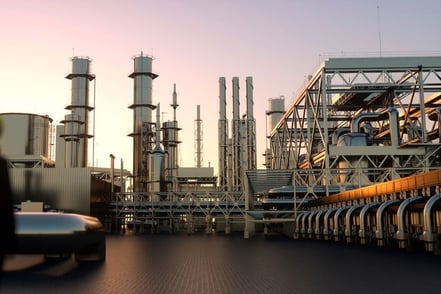Las Vegas has long been at the epicenter of innovation, hosting international technology showcase events such as the Consumer Electronics Show (CES) and the Specialty Equipment Market Association (SEMA) event. For years, technology companies have used the CES show as the launching pad for their innovative products. The 2017 show featured the latest in autonomous cars, drones, robotics, and a variety of Internet of Things (IoT) devices. It’s no wonder, then, that Las Vegas is at the forefront of smart city innovation.
Smart City Vision
Las Vegas was one of 78 cities that applied for the Department of Transportation’s 2016 Smart City Challenge. The initiative asked mid-sized cities across the U. S. to develop ideas for an “integrated, first-of-its-kind smart transportation system that would use data, applications, and technology to help people and goods move more quickly, cheaply, and efficiently.”1
So, what exactly is a “smart city?” “I really believe a smart city is something that defines an experience,” says Sherwood, a seasoned executive with more than 20 years of experience in technology, process improvement, and innovation, most of it in municipal government operations. “Everyone understands when you talk about the experience of going to Disneyland – unparalleled service that caters specifically to you. A smart city is roughly the same concept. We’re trying to use business processes and technology to enable easy and effortless movement through the city.”
Sherwood explains that implementing smart city technology is not just something that is “nice to have” but is almost mandatory if you want to grow your local economy.
“Cities are in competition with one another for municipal space,” he says. “We are constantly asking how we can attract the best businesses and residents. Decisions often come down to who has the best infrastructure, the lowest cost of living, and the best services.” Sherwood is working hard to put Las Vegas at the top of the list of cities to be considered when those conversations occur and he’s not stopping at just transportation solutions.
1 Smart City Challenge web site, www.transportation.gov, U. S. Department of Transportation.
Converting Innovation into Reality
Citizen and visitor engagement are key drivers when Sherwood and his team consider which innovations to implement. For example, they’ve adapted the Amazon Echo platform to allow individuals to ask specific questions about the city, such as the schedule of the next city council meeting, the identity of various city office holders, election information, and which parks have baseball. They are looking to add information about every restaurant in the city and county.
The next step for Sherwood and his team is augmented reality through which people can hold their smartphones up to the street and it will show icons for attractions like museums. Clicking on the icon will provide step-by-step directions, admission fees, and eventually, a way to buy tickets. They are looking at implementing “beaconing” to do such things as tag city artwork and provide video information, enable parking payments, and reserve tennis courts.
“These are all types of technologies we’re looking to experiment with,” says Sherwood. “What makes us different is that we’re not afraid to fail. We’ll come up with a design and it may not work out completely, but we’ll learn from it and take those lessons and apply them to new technologies.”
The public has responded positively to the initiatives Sherwood and his team have implemented.
“People are excited to see we’re trying new things,” says Sherwood. “There’s no negative feedback at this point. They’re happy that the city is trying to do things to make their lives easier.
The Innovation District
One of the most ambitious projects in the city is the Innovation District, a large downtown area developed with the help of Arctiq (formerly DynTek) that is a testing ground for piloting new technology. “We’re hooking up 10 intersections; adding cameras to count vehicles, pedestrians, and bicyclists; and monitoring air quality,” explains Sherwood. “We’re hoping to calibrate the signal lights to keep traffic moving and eliminate large amounts of CO2 from idling cars.”
They also plan to use these smart intersections as part of a “connected corridor” where autonomous vehicles can safely carry passengers back and forth.
“The vehicles will be connected to the signal lights so they will know when to slow down and never have to stop as they approach each intersection,” says Sherwood.
They are even putting sensors in trash barrels so city workers will know when the barrels need to be picked up, how often they are being filled, and whether they are even needed in some areas.
“Partnerships like this one with Arctiq are critical in all these initiatives,” Sherwood says. “Arctiq can use its skills and experience as an integrator to help us build out the infrastructure and install and maintain the technology.”
“Arctiq has a large and extensive presence in Las Vegas, including a state-of-the-art Technology Experience Center,” said Dan Minella, Arctiq’s Vice President for the West Region. “We continue to invest and expand in this market in large part due to the innovation the city is bringing to the region.”
The City of Las Vegas’s IoT solutions are built on the Cisco Connected Digital Platform
This platform provides a secure, open foundation layer that aggregates and organizes data from city infrastructure sensors and other data sources in a consistent, easy-to-use format and correlates data contextually across agencies and sectors. As a result, city officials have a holistic view and can improve decision making, drive faster event response and engage residents to improve their overall quality of life. The platform includes APIs for urban service domains, including outdoor lighting, parking, urban mobility, crowd and traffic.
“Cisco’s pre-architected Connected Digital Platform has helped the City of Las Vegas accelerate our IoT initiatives,” said Sherwood. “Plus, Cisco provides the backbone and core infrastructure, including switches, wireless architecture — and more — to power our overall digital transformation.”
The Las Vegas—Arctiq Partnership
Sherwood is quick to stress the importance of the city’s partnership with Arctiq. “Any successful project is always a collaboration and a partnership,” says Sherwood. “Arctiq is a key part of that. They bring expertise to help make our ideas a reality.”
Sherwood stresses that it isn’t just about selling and servicing pieces of technology.
“It’s about finding solutions and building a partnership and relationship based on trust and cooperation,” he says. “Companies like Arctiq have a deep understanding of how to build a connected network. Governments are thinly staffed, and you need to partner with firms that you know are going to be there when problems arise.”
The Future
Asked what future technology excites him the most, not surprisingly, Sherwood responds, “They’re all exciting to me. But if I had to pick one, I really like artificial intelligence.”
He envisions a day when your smartphone will know who you are and you will be able to drive around Las Vegas and simply tell your smartphone you’d like to have dinner. It will then book your reservation and find a parking spot for you. Or when you can be at home and tell your Amazon device you need a ride to get to your doctor and a shuttle picks you up at your door and sends your medical information right to the office.
“How do we as a city government enable that type of connectivity for everyone? How do we use artificial intelligence and machine learning to help the citizens of the community in a real, tangible way? Those are questions we ask every day. In reality,” Sherwood says finally, “my favorite project is probably yet to come.”
“It’s about finding solutions and building a partnership and relationship based on trust and cooperation." ~ Michael Sherwood Director of Technology and Innovation City of Las Vegas



